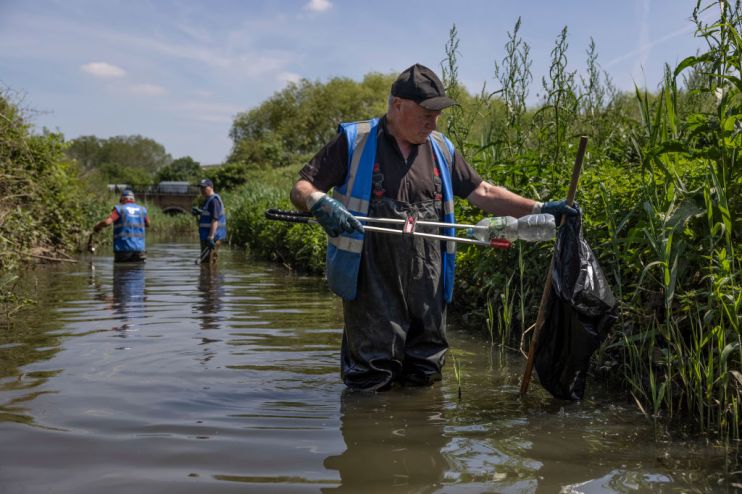Sewage spills: Government urged to take a tougher approach with water firms and not just give ‘a slap on the wrist’

The government must hold firm with plans to clamp down on underperforming water companies if it wants to end sewage pollution across Britain’s rivers and seas, warns a leading environmental group.
Surfers Against Sewage told City A.M. that Downing Street should not “let polluters off with a slap on the wrist” amid reports the Environment Secretary Therese Coffey is looking to scale back plans to raise the maximum cap for water company fines to £250m.
Izzy Ross, campaigns manager, said: “Current water company fines are a drop in the ocean, whilst bosses and shareholders swim in profits. Fines for polluting our waterways must impact the ways water companies run their business, otherwise they’re no deterrent at all.
“The Environment Secretary shouldn’t let polluters off with a slap on the wrist – you give these water companies an inch and they take a mile.”
Surfers Against Sewage contrasted the £965m companies paid out to shareholders with the £102m they were fined by regulatory agencies – which it described as “like pocket change.”
“It’s absolutely abhorrent that water companies are able to simply absorb the cost of fines whilst people and planet are forced to pay the price. Now is a time for the government to act and end sewage pollution, not take it easy on water companies’ relentless polluting and environmental destruction,” Ross argued.
Sam Hall, director of the Conservative Environment Network – an influential Westminster body backed by green Tory MPs – believed the government has been taking a tougher approach in recent years to ensure fines aren’t “just the cost of doing business.”
However, he urged the government to lift the cap on fines and called on Downing Street to introduce more policies to boost water quality alongside the stick of financial penalties for sewage spills.
Hall said: “While fines for criminal prosecutions are not capped, lifting the small £250,000 cap on civil offence fines for polluting water firms is an opportunity to ensure polluters always pay, even in less environmental severe breaches.
“The upcoming consultation on scrapping the cap is a welcome step. But more needs to be done to drive improvements to water quality, like designating more bathing water sites to empower communities with data to hold polluters accountable and rolling out new payments for farmers to reduce agricultural runoff.”
When approached for comment, a Defra group spokesperson said: “We are clear that water companies must be held to account for poor performance. That’s why we are making it easier for regulators to enforce fines and hold them to account. More detail on this will be set out in our consultation in the spring.”
Coffey is reportedly backing away from plans to hit water companies with fines of up to £250m for spilling sewage into rivers and seas – a 1,000 per cent increase in the cap proposed by her predecessor Ranil Jayawardena.
The government first announced plans last year to expand the use of civil variable monetary payments that the Environment Agency can issue, meaning sanctions can be imposed more often without protracted court cases.
It is now launching a consultation, expected to take place this spring, on potential reforms to the water sector, including the £250,000 price cap.
The Environment Agency and Ofwat are currently engaged in the largest criminal and civil investigations into water company sewage discharges ever – across 2,200 treatment works, as a result of increased monitoring.
Six water companies currently face enforcement action from the two watchdogs including chief capital supplier Thames Water.
Industry body Water UK has been approached for comment.
For all the latest Lifestyle News Click Here
For the latest news and updates, follow us on Google News.

